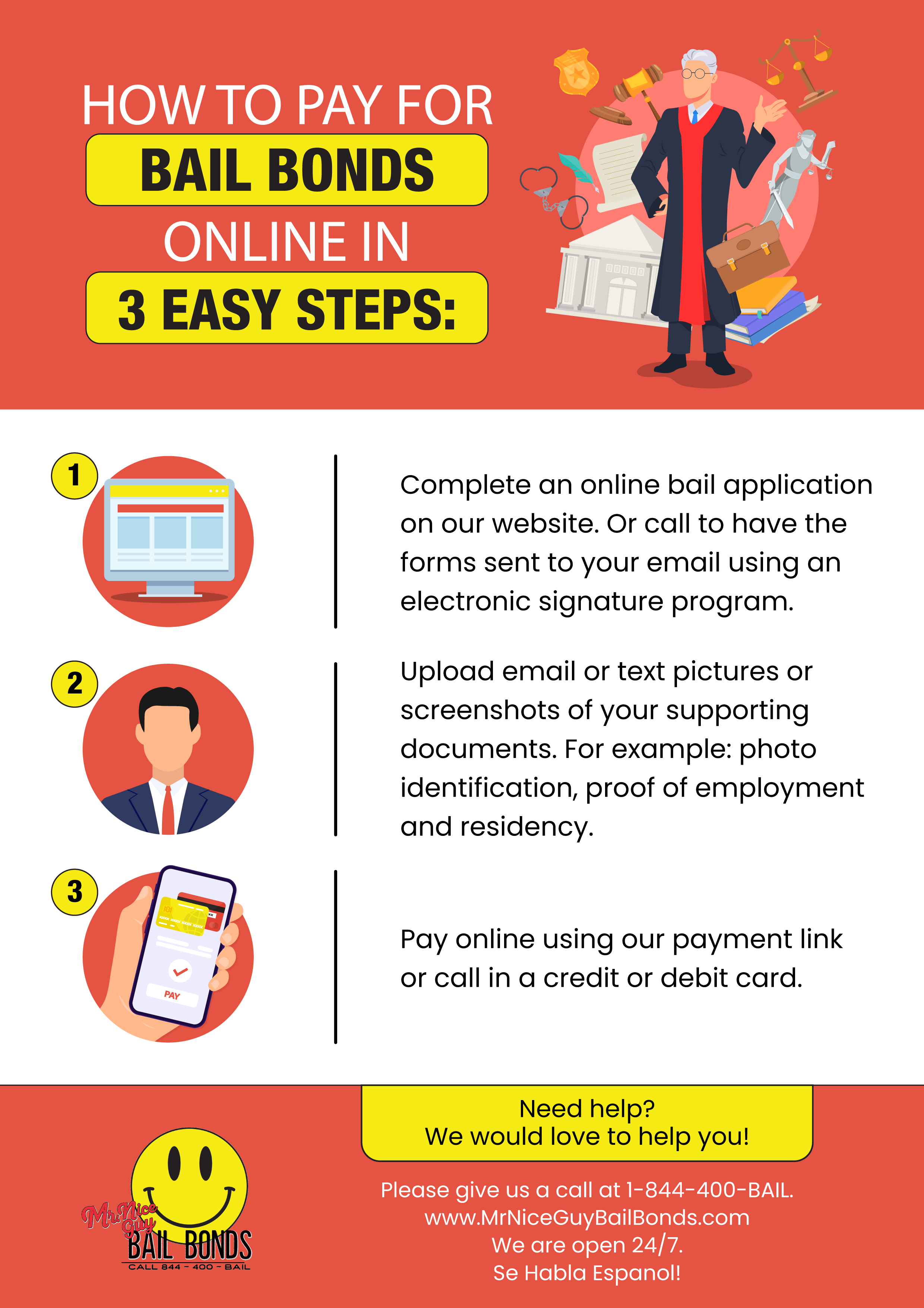How Bond Bonds Help You Secure a Swift Launch
Bond bonds act as a vital system for individuals navigating the intricacies of the criminal justice system, providing a pathway to reclaim freedom quickly adhering to an arrest. By involving a bail bondsman and paying a fraction of the overall bail quantity, defendants can resolve both lawful obligations and personal obligations without the instant concern of complete settlement. This process not only assists to maintain one's public photo yet also facilitates a smoother shift during a tough time. The intricacies of this system commonly prompt questions-- what are the certain advantages, and exactly how do they absolutely impact the overall experience?
Recognizing Bail Bonds
Bond bonds offer as a crucial mechanism in the legal system, supplying people with a method to protect their launch from safekeeping while waiting for test. This monetary plan allows accuseds to publish bail, which is a set amount determined by the court, guaranteeing their appearance at future court days. When a defendant can not afford the complete bond quantity, they might look for support from a bail bond business, which generally bills a cost, frequently around 10% of the total bond amount.
The bail bond operates as a warranty to the court that the offender will abide by all legal commitments. If the defendant falls short to appear in court, the bail bond business is accountable for paying the full bail quantity. This danger incentivizes the business to make sure that the offender shows up for their set up hearings.
Recognizing the terms of a bail bond is vital for anyone considering this alternative. It is very important to acknowledge that bail bonds do not cover lawful fees or other expenses connected with a trial. Therefore, people need to be knowledgeable concerning their civil liberties and obligations when entering right into a bail bond arrangement. This understanding can significantly affect the result of their legal situation.
The Duty of a Bondsman
How does a bail bondsman facilitate the launch of accuseds from custody? A bail bondsman, additionally known as a bail bonds representative, plays a vital duty in the bond process by offering the funds required to protect an accused's release from jail - bail bonds licking county. When an accused can not afford the complete bond amount set by the court, the bail bondsman action in to cover this expense, commonly charging a non-refundable costs, usually a percentage of the total bond
Once the premium is paid, the bail bondsman secures the defendant's release by authorizing a surety bond with the court. This bond assures that the offender will stand for all scheduled court hearings. If the accused fails to appear, the bondsman is accountable for paying the full bond quantity to the court, which incentivizes the bail bondsman to guarantee the accused adheres to their court obligations.
Additionally, bail bondsmans commonly assess the threat linked with each situation, examining the accused's background, connections to the community, and possibility of showing up in court (bail bonds licking county). This risk analysis educates the terms of the bond and may consist of collateral requirements, further making certain the bondsman's financial investment is protected throughout the lawful process
Advantages of Using Bail Bonds
Utilizing bond bonds gives several advantages for offenders dealing with lawful obstacles. One of the primary advantages is the economic relief it offers. When individuals are restrained, securing their release usually calls for a substantial sum, which might be unrestrainable for numerous. Bail bonds allow defendants to pay a portion of the overall bond quantity, typically around 10%, therefore minimizing the prompt financial burden.

Additionally, working with a bondsman gives access to expert assistance via the complicated lawful landscape. Bondsmen are educated regarding the legal system and can supply important guidance, ensuring offenders understand their responsibilities and civil liberties. This professional assistance can be important in protecting a positive result in court.
Last but not least, using a bail bond can help keep a defendant's public photo and employment status, which can be bond locations adversely influenced by prolonged detention. Overall, the advantages of bond bonds extend past monetary factors to consider, promoting security throughout a difficult time.
The Bond Process Described
Understanding the bond process is essential for any individual browsing the intricacies of the lawful system. The bond process begins after an individual is arrested and brought previously a court. Throughout the initial look, the judge identifies whether bond applies and sets the amount based upon the severity of the fees, the defendant's criminal background, and trip risk.
As soon as bond is established, the offender has a number of choices for protecting their release. In the accused, this case or a co-signer pays a non-refundable fee, normally 10% of the overall bail amount, to the bail bondsman, who after that covers the full bail.
Upon repayment, the bondsman files required paperwork, and the defendant is released from protection. It is vital to recognize the responsibilities included, consisting of participating in all court hearings and adhering to any problems established by the judge, as failing to do so can lead to a forfeit of the bond and additional lawful repercussions.
Common Mistaken Beliefs About Bond

One more prevalent false impression is that bail quantities are universally established and unchangeable. Actually, courts have discernment in figuring out bond amounts based on different variables, including the nature of the criminal activity, the defendant's criminal history, and trip threat. Additionally, lots of think that only well-off people can afford bail, neglecting the presence of bail bonds, which offer an even more obtainable financial option.
Some additionally think that bond is a punishment, not understanding that it acts as a mechanism to make Learn More sure accuseds stand for their court dates while keeping their liberty throughout the lawful procedure. Numerous individuals are uninformed that bail is not a right; it can be rejected under certain circumstances, especially in severe criminal offenses or repeat offenses. Clearness on these misunderstandings is crucial for informed choices pertaining to bond and the overall lawful procedure
Verdict

When a defendant can not pay for the full bond quantity, they might seek help from a bail bond firm, which typically charges a fee, commonly around 10% of the total bond quantity.
If the accused fails to appear in court, the bail bond business is liable for paying the full bail amount. A bondsman, likewise recognized as a bail bonds agent, plays a crucial role in the bond procedure by providing the economic sources essential to protect an accused's launch from prison. Bond bonds enable offenders to pay a fraction of the total bail amount, normally around 10%, consequently relieving the instant monetary worry.
In a co-signer, the offender or this case pays a non-refundable fee, commonly 10% of the complete bond quantity, to the bail bondsman, that then covers the full bond.